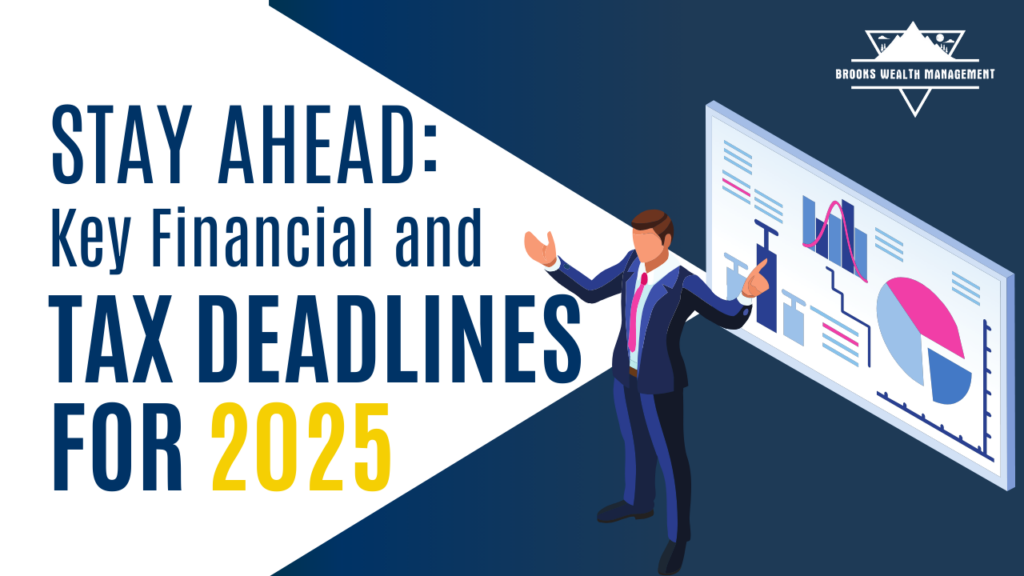As we move into 2025, staying informed about critical financial and tax deadlines can help you avoid unnecessary penalties and seize opportunities to maximize your wealth. Below is an overview of essential dates to keep on your radar, whether you’re an individual or a business owner.
For Individuals
- January 1
The tax year begins, as well as the General Enrollment Period for Medicare Part A and Part B. It’s also the start of the Open Enrollment Period for Medicare Advantage plans. - April 15
This is the big one—Tax Day! It’s the deadline to file your Form 1040, pay taxes owed, and request an extension. It’s also the last day to contribute to an IRA or HSA for the prior tax year. - December 31
The final day to complete actions such as satisfying Required Minimum Distributions (RMDs), making annual gifts, and contributing to employer-sponsored retirement plans for the current tax year.
These dates are critical for planning contributions, distributions, and charitable giving, particularly if you want to optimize tax savings.
For Business Owners
- January 31
Deadlines for issuing employee Forms W-2 and contractor Forms 1099. - March 15
Filing deadlines for S-corporations and partnerships (Forms 1120S and 1065). Need more time? File for a six-month extension using Form 7004. - October 15
The extended deadline for filing corporate income tax returns (Forms 1040, 1120, or 1120S), ensuring compliance while allowing extra time for complex filings.
Understanding these deadlines ensures you remain compliant and avoid costly fines.

